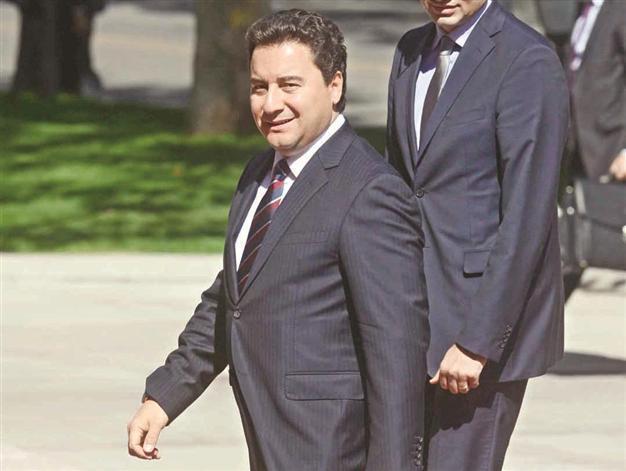Turkish deputy PM chides US on its monetary policy
ISTANBUL

The US has no luxury to say ‘what next?’ over
monetary policy, Babacan says.
The world’s largest economy, the United States, does not have the luxury of not revealing future monetary moves and cannot say “I do not know what to do [next],” said Deputy Prime Minister Ali Babacan yesterday.
“[The United States] should put forth what it will do and when it will do it [regarding monetary policy] so that other countries and all the economic operators can make their decisions accordingly,” he said in his keynote speech at the third Istanbul Finance Summit, according to Anatolia news agency.
The first summit was organized in 2010 following Prime Minister Recep Tayyip Erdoğan’s famous “one minute” exclamation at a meeting at the World Economic Forum’s annual Davos event a year before. It is supported by both the government and private sector actors to contribute to an ambitious bid to make Istanbul a global finance center.
This year the event’s main theme is “Finance in a Fragile World: Risks and Opportunities.”
“When we take a look at the United States, we particularly see an ambiguity in its finance policies. Nobody expects a move until the presidential election in November. But right after the election if [the new American government] does not take quick decisions about the debt ceiling and automatic [spending cuts] and does not carve out a reliable [economy policy] program for 2013 and the period after, 2013 may be a year that the economy of the U.S. is debated,” Babacan said.
Brave decisions must be made and difficult steps should be taken to solve economic problems, he said. “It should be done with reliable, reputable medium-term programs.”
Medium-term programThe Turkish government boasts of its three-year medium-term programs, the first of which was introduced in 2005, and updates them every year. Having recorded high growth rates for the last two years, economy-related Cabinet members put emphasis on the success of such programs.
Governments cannot rely on central banks that provide liquidity to markets by printing money and say, “we have overcome the crisis,” Babacan said.
“Both in Europe and Asia there is a deep concern focused on European-centered economic crisis. In spite of the fact that the steps the European Central Bank and the Federal Reserve took provided temporary market comfort, if governments and authorities do not do what is necessary, we will witness that comfort vanishing fast,” he said.
He said Turkey will be able to maintain lower tax rates compared with European and American finance centers as the financial structure of the country is strong.
There has been some budgetary deterioration this year, one-third of which stems from lower revenues than expected and the rest stemming from rising expenditure, he said. “So measures should be thought about in this regard,” he said, adding that an updated medium-term program will be disclosed in a few weeks’ time.
“If Europe was one united country, the course of action would be easy and clear. But it is not. So if the financial agreements do not transform into a common behavior, I will continue to be pessimistic [about a possible solution to the European crisis],” Turkey’s Capital Markets Board President Vedat Akgiray said at a special session during the summit.
Institutions and even countries should be allowed to go bankrupt, he said.
Islamic banking on fast lane
ISTANBUL - Anatolia News Agency
Global Islamic banking assets have hit a total volume of $1.1 trillion according to the latest estimates, the President of the Islamic Development Bank Ahmed Mohammed Ali al-Madani said yesterday at the Istanbul Financial Summit.
“The Global Islamic financial sector will grow 20 percent annually between 2011-2015, according to a Standard and Poor’s estimate,” al-Madani said, adding that the volume of Islamic banking assets had grown twice as fast as conventional banking assets of late.
Separately, The Banking Regulation and Supervision Agency (BDDK) President Mukim Öztekin said in his speech at the summit that sukuk (Islamic bonds) and other non-interest banking tools would contribute to the growth of the Turkish banking sector. “It is likely that the share of participation banking in the sector will grow,” he said.
